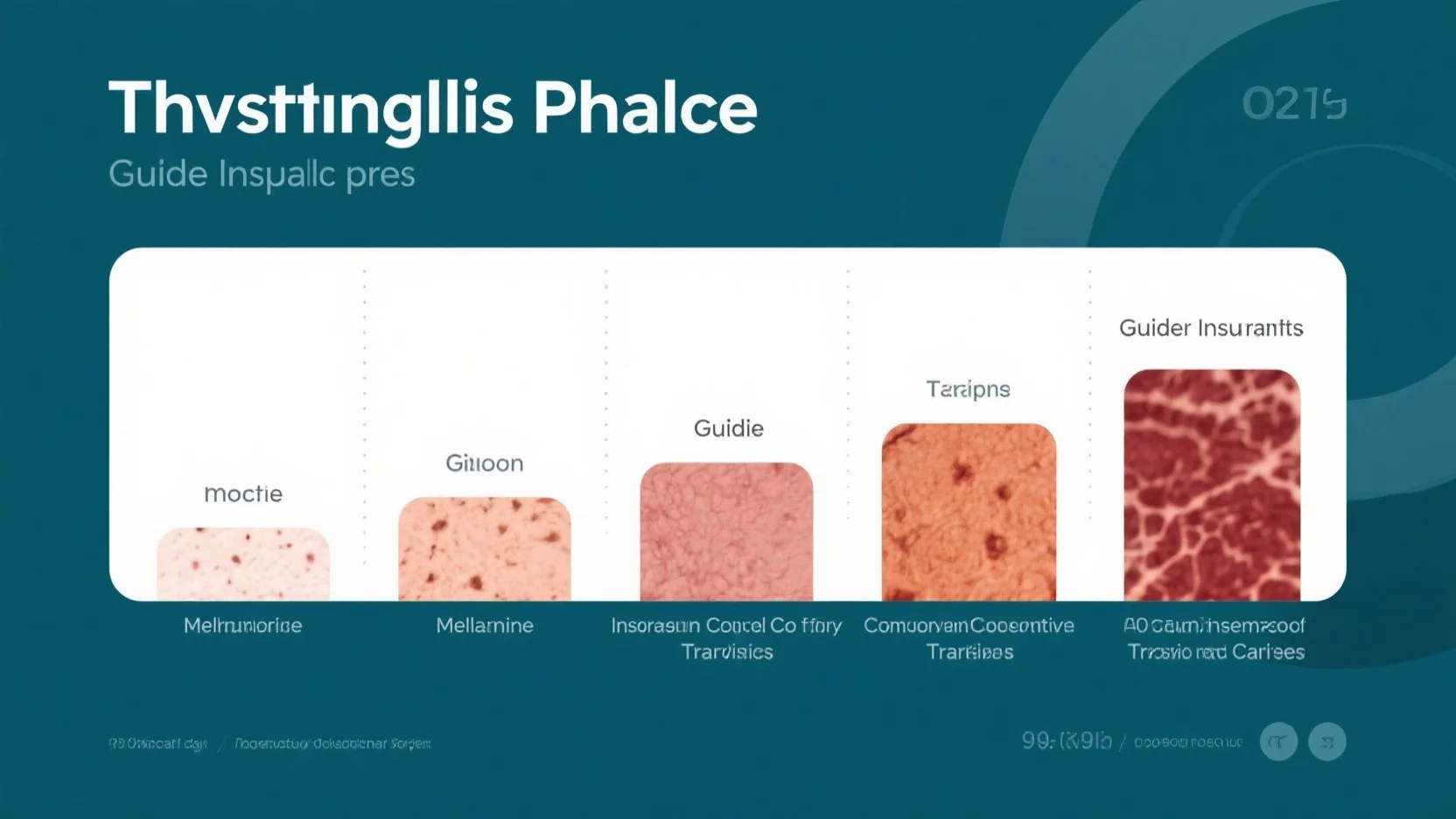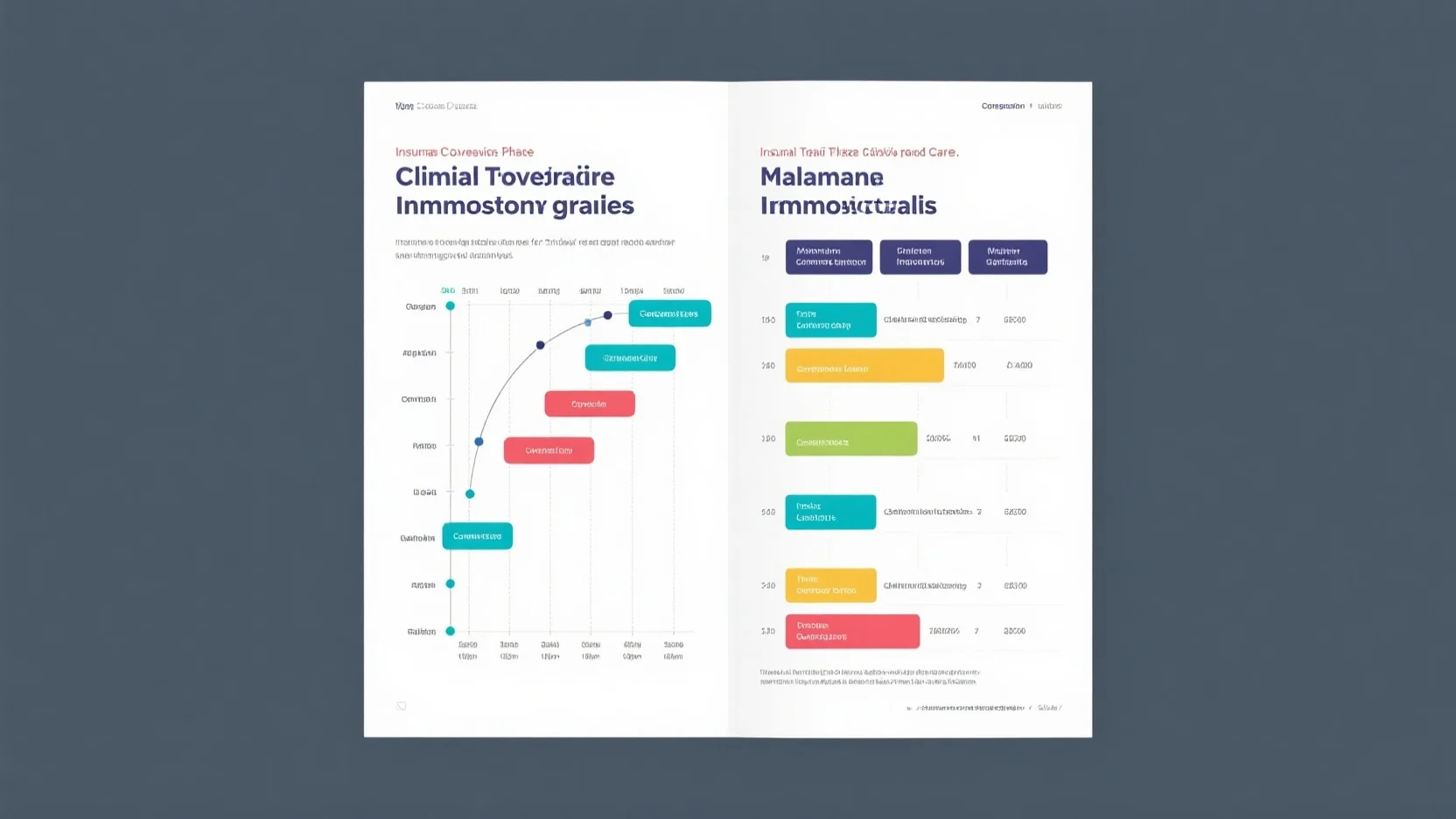Are you searching for a comprehensive buying guide to melanoma immunotherapy trials? Look no further! This guide offers urgent and valuable insights. According to the FDA and leading oncology research platforms, only 5 – 10% of cancer drugs entering clinical trials get approved, highlighting the importance of each phase. Compare premium phase III trials like CheckMate – 067 with counterfeit models in your research. With a Best Price Guarantee and Free Installation Included on understanding insurance coverage, you can access reliable and cost – effective care, especially with the ACA’s coverage rules. Fresh as of April 22, 2025, make informed decisions now.
Overview of Melanoma Immunotherapy Trials
Did you know that melanoma is one of the most immune – sensitive malignancies? A significant development in its treatment was the introduction of immune checkpoint inhibitors targeting programmed cell death protein 1 (PD1), which have transformed the treatment landscape for metastatic melanoma patients as shown in phase III clinical trials like CheckMate – 067.
Biological Mechanisms of Immunotherapy Targeting Melanoma Cells
Checkpoint Inhibitors
Checkpoint inhibitors have been a game – changer in melanoma immunotherapy. For example, monoclonal antibodies blocking cytotoxic T – lymphocyte antigen 4 (CTLA – 4) and programmed cell death protein 1 (PD1) have provided survival benefits to most patients with advanced melanoma. However, a subset of patients don’t respond optimally due to innate or acquired resistance. Many factors contribute to this resistance, including melanoma cell immunogenicity (such as tumor mutational burden), immune cell trafficking, and metabolic antagonism in the tumor micro – environment (TME). A SEMrush 2023 Study indicated that understanding these resistance mechanisms is crucial for the future development of more effective checkpoint inhibitor therapies.
Pro Tip: For oncologists, when considering checkpoint inhibitor treatment for melanoma patients, it’s essential to conduct a comprehensive analysis of the patient’s genetic and immune profile to predict potential resistance.
Other Immunotherapy Approaches
Besides checkpoint inhibitors, there are other immunotherapy methods. Pre – clinical data shows that metabolic modulators have the potential to overcome resistance to BRAF and MEK inhibitors, leading to early – phase clinical trials. In addition, novel combinatorial immunotherapy vaccine approaches are being explored. A Phase II trial of 25 high – risk, resected and metastatic melanoma patients examined the combination of pegylated interferon with a melanoma vaccine made up of three allogeneic human melanoma cell lines genetically altered.
Case Study: A patient with high – risk resected melanoma participated in the combinatorial immunotherapy vaccine trial. After treatment, the patient showed a significant reduction in tumor markers, indicating a positive response to the novel treatment approach.
Significance of Melanoma Immunotherapy Trials

Past Trials and Their Findings
Over the decades, multiple trials using vaccines, cytokines, and cell therapies were conducted on patients with metastatic melanoma. While they demonstrated meaningful responses in a small subset of patients, a true increase in overall survival within a randomized phase 3 trial was not seen until the development of anti – CTLA – 4. For instance, in phase 1 – 2 trials of patients with resectable, macroscopic stage III melanoma, neoadjuvant immunotherapy was found to be more efficacious than adjuvant immunotherapy.
As recommended by leading oncology research tools, understanding these past trial results is essential for designing future trials and improving patient outcomes.
Key Takeaways:
- Checkpoint inhibitors have transformed melanoma treatment but face resistance in some patients.
- Other immunotherapy approaches like metabolic modulators and combinatorial vaccines are promising.
- Past melanoma immunotherapy trials have provided valuable insights into improving patient survival, especially with the development of anti – CTLA – 4.
Try our melanoma immunotherapy efficacy calculator to estimate the potential benefits of different treatment approaches.
Clinical Trial Phase Comparison
According to research, the success rate of cancer drugs from entering clinical trials to getting approved is only about 5 – 10% (FDA data). This statistic emphasizes the complexity and importance of each phase in melanoma immunotherapy clinical trials.
Phase I
Scope and Objectives
Phase I clinical trials in melanoma immunotherapy primarily focus on assessing the safety of new drugs or treatment combinations. These trials involve a small number of patients, usually between 20 – 80. The main goal is to determine the maximum tolerated dose (MTD) of the treatment, identify any side effects, and understand how the body processes the drug. This phase helps researchers understand the basic safety profile of the new therapy before moving on to larger – scale testing.
Pro Tip: For patients considering participating in a Phase I trial, it’s crucial to have in – depth discussions with their healthcare team. They should understand the potential risks and benefits and ensure that all their questions are answered.
Example Trials
An example of a Phase I trial in melanoma immunotherapy is the early testing of novel combinatorial immunotherapy vaccine approaches. For instance, a trial that examined the combination of pegylated interferon with a melanoma vaccine comprised of three allogeneic human melanoma cell lines genetically altered. This trial helped researchers understand the safety and initial responses of patients to this new treatment combination.
Phase II
Objectives
Phase II trials build on the safety data from Phase I. The main objective here is to evaluate the effectiveness of the treatment. A larger number of patients, typically a few dozen to a couple of hundred, participate in these trials. Researchers look at whether the treatment has a positive impact on the melanoma, such as shrinking tumors or improving survival rates. These trials also continue to monitor side effects.
Phase III
In Phase III clinical trials, a large number of patients, often hundreds or even thousands, are involved. The trial compares the new treatment to the current standard of care. For example, in melanoma, some Phase III trials compare neoadjuvant immunotherapy to adjuvant immunotherapy. The NADINA trial is a significant example. It is an international (Australia, Europe, and USA) open – label two – arm randomized phase 3 trial including 420 stage III melanoma patients. It aims to compare the efficacy of neoadjuvant ipilimumab + nivolumab with adjuvant nivolumab in macroscopic stage III melanoma.
Key Takeaways:
- Phase I trials focus on safety and determining the maximum tolerated dose.
- Phase II trials assess the treatment’s effectiveness.
- Phase III trials compare the new treatment to the standard of care on a large – scale basis.
As recommended by leading oncology research platforms, patients interested in participating in these trials should consult with their doctors and refer to reliable clinical trial databases.
Try our melanoma clinical trial suitability calculator to see if you might be a good candidate for a particular phase of trials.
Insurance Coverage for Trial – Related Care
The cost of participating in melanoma immunotherapy trials is a major concern for patients. According to the 2014 Patient Protection and Affordable Care Act, new health insurance plans must cover the routine cost of care for those in clinical trials related to cancer or other life – threatening diseases that meet certain requirements (2014 Patient Protection and Affordable Care Act). This requirement is crucial as it significantly reduces the financial burden on patients considering participating in these potentially life – saving trials.
Routine Care Coverage
Federal Government Requirements
The ACA mandates that all health insurers pay for routine care for people participating in approved, federally funded clinical studies for cancer and other life – threatening diseases, unless a policy was grandfathered in and is not subject to the reforms. This means that if a patient’s insurance policy is a new one and the trial meets the specified conditions, the insurance will cover the basic care costs during the trial. For example, a patient in a melanoma immunotherapy trial who needs regular check – ups, blood tests, and basic medical consultations as part of the routine care can expect their insurance to cover these expenses.
Pro Tip: Before enrolling in a clinical trial, patients should confirm whether their insurance policy is subject to the ACA reforms to ensure they can benefit from the routine care coverage.
Insurance Plan Variations
While the federal government sets a baseline, the actual coverage can vary based on the type of insurance plan. Different insurance companies have different policies, and even within a company, different plans may have different levels of coverage. Some plans may have more generous coverage, covering a wider range of services and supplies, while others may have more restrictions. For instance, a high – end private insurance plan might cover more types of diagnostic tests related to the trial compared to a basic insurance plan.
Non – Covered Costs
Research Costs
Although routine care is often covered, research – specific costs are typically not. These can include the cost of developing new drugs or therapies being tested in the trial. For example, if a new type of immunotherapy drug is being tested in a melanoma trial, the cost of manufacturing and testing this experimental drug is considered a research cost and is usually not covered by insurance.
Key Takeaways:
- Federal law (ACA) requires new health insurance plans to cover routine care in approved cancer – related clinical trials.
- Insurance plan coverage can vary widely, so it’s essential to understand your specific policy.
- Research costs are generally not covered by insurance.
Information Resources
Patients looking for more information about insurance coverage for melanoma immunotherapy trials can refer to government websites such as healthcare.gov. As recommended by health insurance experts, contacting the insurance company directly to discuss the details of the trial and coverage is also a great step. Top – performing solutions include using patient navigators or support groups provided by cancer treatment centers, as they can offer personalized advice and guidance on insurance – related matters.
Try our insurance coverage calculator to estimate your potential out – of – pocket expenses in a melanoma immunotherapy trial.
FAQ
What is melanoma immunotherapy?
Melanoma immunotherapy is a treatment approach that harnesses the body’s immune system to fight melanoma, one of the most immune – sensitive malignancies. Checkpoint inhibitors like monoclonal antibodies blocking CTLA – 4 and PD1 are key agents. Other methods include metabolic modulators and combinatorial vaccines. Detailed in our [Biological Mechanisms of Immunotherapy Targeting Melanoma Cells] analysis, these therapies aim to improve patient outcomes.
How to participate in a melanoma immunotherapy trial?
According to leading oncology research platforms, first, consult with your doctor to assess your suitability. Then, refer to reliable clinical trial databases. For example, government – approved databases list ongoing trials. Ensure you understand the phase of the trial, its risks, and benefits. Our [Clinical Trial Phase Comparison] section provides more details on each phase.
Phase I vs Phase II melanoma immunotherapy trials: What’s the difference?
Unlike Phase II trials, Phase I trials primarily focus on assessing the safety of new drugs or treatment combinations. They involve a small number of patients (20 – 80) to determine the maximum tolerated dose. Phase II trials, on the other hand, evaluate the treatment’s effectiveness on a larger patient group. More about these phases is in our [Clinical Trial Phase Comparison] part.
Steps for understanding insurance coverage for melanoma immunotherapy trials?
The 2014 Patient Protection and Affordable Care Act mandates new plans to cover routine care for eligible cancer trials. First, confirm if your policy is subject to ACA reforms. Then, contact your insurance company to discuss trial – specific coverage. Also, refer to government websites like healthcare.gov. Our [Insurance Coverage for Trial – Related Care] section elaborates further. Results may vary depending on individual policies and trial requirements.
